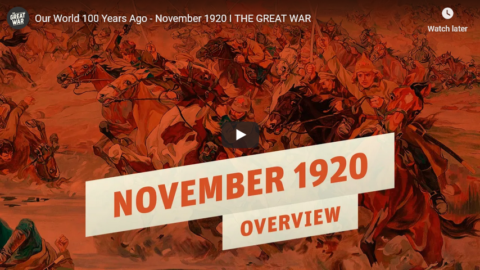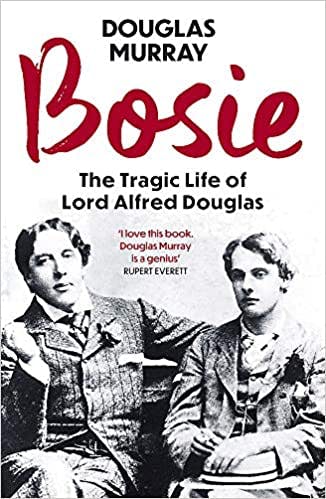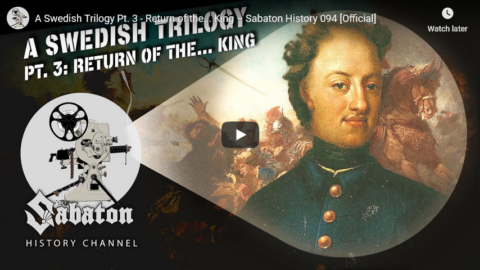Stumpy Nubs
Published 20 Aug 2020-Your table saw isn’t the problem, you’re using the wrong blade!
More links to help you►
Video about blade tooth features: https://youtu.be/0J1pRBiVKbI
Video about specialty joinery blades: https://youtu.be/PZXg5KA0P-Q
Video about dado sets: https://youtu.be/Ex4UgxzaB0Q
Video about setting blade height: https://youtu.be/JL8-1bmt7XY
Video about thin kerf vs. full kerf: https://youtu.be/s0UtOpRRaO4When you use this link to visit our sponsor, you support us►
Ridge Carbide (Use coupon code SNWJ10): https://goo.gl/z8TP0kSubscribe (free) to Stumpy Nubs Woodworking Journal e-Magazine► http://www.stumpynubs.com/subscribe.html
Follow us on social media►
Instagram: https://www.instagram.com/stumpynubs/
Twitter: https://twitter.com/StumpyNubs
November 23, 2020
Every woodworker need three table saw blades
QotD: The social poison of hypersensitivity
There is a hypersensitivity at work here. A heightened and overactive threat-detection mechanism, perhaps. Whatever the mechanics of the thing, it is understandable. Jews did indeed suffer mightily in history, and are watchful for a future pogrom. Blacks did indeed suffer slavery and segregation.
And yet, this hypersensitivity is absolute and complete social poison.
Read that again, please. This is a poison pill. When you read Drew’s piece, you will notice how everything is colored through the lens of racism. He literally cannot see anything without suspecting secret racism behind it. And, furthermore, I have no doubt his friends are fully cognizant of this. They, not wishing to anger him or appear racist themselves (who does?), almost assuredly feel a constant social pressure to micromanage their words, gestures, and behavior around their friend. This, in turn, makes interacting with him less pleasant. This becomes self-reinforcing. Drew detects his friends act different about him, which fuels an assumption that the difference is due to racism, which in turn is detected by the friends, who now act even more different in an effort to avoid this very thing.
Everybody gets caught in a spiral of stupidity that no one can escape from.
All until somebody, in the heat of the moment, not thinking, breaks out a slur. Whether driven by bad luck, too much to drink, or some other mechanism, the micromanagement of offense is broken. And not even knowing how to handle this, the relationship of the man and his friends entirely breaks down, requiring him to write a letter to his friend, and considering abandoning the friendship altogether.
See how this works? Drew, like many American blacks, has a wall between him and the rest of us. Piercing that wall takes extra effort. He may even be entirely justified in how he arrived at the notion that the wall was necessary, just as a Jewish person is quite justified in worrying about pogroms and other such things, given the course of history.
However justified, though, the hypersensitivity works against healing and normalization of relations. It poisons relationships.
Thales, “Hypersensitivity and Race”, Declination, 2018-08-08.
November 22, 2020
Our World 100 Years Ago – November 1920 I THE GREAT WAR
The Great War
1.25M subscribers
Dissent This
What happened around the world 100 years ago?» SUPPORT THE CHANNEL
Patreon: https://www.patreon.com/thegreatwar» OUR PODCAST
https://realtimehistory.net/podcast – interviews with World War 1 historians and background info for the show.» BUY OUR SOURCES IN OUR AMAZON STORES
https://realtimehistory.net/amazon *
*Buying via this link supports The Great War (Affiliate-Link)» MORE THE GREAT WAR
Website: https://realtimehistory.net
Instagram: https://instagram.com/the_great_war
Twitter: https://twitter.com/WW1_Series
Reddit: https://reddit.com/r/TheGreatWarChannel»CREDITS
Presented by: Jesse Alexander
Written by: Jesse Alexander
Director: Toni Steller & Florian Wittig
Director of Photography: Toni Steller
Sound: Toni Steller
Editing: Toni Steller
Motion Design: Philipp Appelt
Mixing, Mastering & Sound Design: http://above-zero.com
Maps: Daniel Kogosov (https://www.patreon.com/Zalezsky)
Research by: Jesse Alexander
Fact checking: Florian WittigChannel Design: Alexander Clark
Original Logo: David van StepholdContains licensed material by getty images
All rights reserved – Real Time History GmbH 2020
From the comments:
The Great War
2 days ago
Hope the new mic does its job and the audio is alright for all of you. We also got a lot of questions about the contents of Jesse’s bookshelf and the Emergency Lockdown Studio Also Known As Jesses Living Room (ELSAKAJLR™). Think we will film an extra video with Jesse (MTV Cribs?).
Douglas Murray’s Bosie: The Tragic Life of Lord Alfred Douglas
Melanie McDonagh reviews the re-released early work by Douglas Murray:
It would probably have been better for Lord Alfred Douglas to have died young. Had he died when he was still beautiful and youthful looking, he would have remained forever the gilded youth Oscar Wilde loved. That golden Alfred Douglas survives in the famous photograph on the front of Douglas Murray’s book, with Wilde sitting near Bosie, his arm extended behind the boy with something like possessiveness. Instead the boy survived until 1945, worn, lonely and poverty-stricken, his looks withered, his nose pinched, contemptuous of modernity, but still with a redemptive, blistering integrity.
Twenty years after it was first written, Douglas Murray has reissued his fine biography of Bosie: his first book, written in his gap year before he went to Oxford. Looking back now on his precocious work, he thinks he overdid a little his enthusiasm for Douglas’s poetry, understated his toxic anti-Semitism and didn’t quite do justice to the pederastic element of his early sexuality – as Bosie preferred to put it, his tastes were for youth and softness. In practice this could mean 14-year-old boys, even younger, at a time when he and Wilde had reunited following Wilde’s release from prison. Actually, I think Murray’s original estimate of Alfred Douglas’s sonnets was absolutely right; they vary in quality, but as he said, at their best they equalled the poets he most venerated.
Trouble is, not many people think of Alfred Douglas as a poet, even though they might unknowingly quote perhaps his most famous line, about the love that dares not speak its name. But there were literary critics in his own day who compared him to Shakespeare as a writer of sonnets. Remarkably he has fallen almost entirely off the literary radar now, known only as a player in Wilde’s drama, and it is a pity that the success of this biography hasn’t changed that.
One of the services Douglas Murray performs in his biography is simply to reproduce some of his finest verses so we can judge it for ourselves. Indeed, while writing the book he managed to persuade the Home Office to release the copybook in which Alfred Douglas wrote his prison verses, In Excelsis, which the authorities refused to do in his lifetime.
Even in his own time, most people thought of him as the lover of Oscar Wilde, a byword for a bugger, the boy who brought about Wilde’s destruction through the vengeful malice of his unbalanced father. That perception was powerfully reinforced by Wilde’s terrible letter written from prison, De Profundis, in which he empties his bitterness against the youth he loved in an outpouring of emotion which was in many respects unjust and untrue, especially about Bosie’s financial support for Wilde. Fatally, the letter was never given to him by Robert Ross, Wilde’s friend, and only released in full during a devastating court case.
Enfield MkI Revolver: Merwin Meets Webley (Sort Of)
Forgotten Weapons
Published 23 Aug 2018http://www.patreon.com/ForgottenWeapons
Cool Forgotten Weapons merch! http://shop.bbtv.com/collections/forg…
Adopted in 1880 to replace the Adams revolver, the Enfield MkI was based on an extraction system patented in the 1870s by Owen Jones of Philadelphia. This was similar in practice to the Merwin & Hulbert, with the barrel and cylinder hinging forward while the cartridge cases were held to the back of the frame. This system allowed empty cases to drop free (except the 6 o’clock position one, which often stuck) while retaining any unfired cartridges in the cylinder. Because the extractor star was fixed to the frame, the piece had to be loaded one round at a time through a loading gate (again, like the Merwin & Hulbert).
In 1882 a number of improvements were made to the design and lockwork, including features to prevent the cylinder from rotating freely and to disconnect the hammer when the loading gate was open. This was adopted as the MkII in 1882. A further change was made in 1887, following the death of a Royal Navy sailor whose gun fell out of its holster and discharged upon hitting the hammer. A new safety mechanism was added to prevent this from happening again, and most guns in service were retrofitted with it.
The Enfield was generally not well received, as it was heavy and a bit awkward to handle. It was issued to the Army, Navy, and RCMP, but replaced by the first adopted Webley top-break revolvers in the late 1880s (Enfield MkII production ceased in 1889). Unlike the Webleys and other private-production guns, there was never a civilian version of the Enfield MkI or MkII made, and they are scarcer to find today as a result.
If you enjoy Forgotten Weapons, check out its sister channel, InRangeTV! http://www.youtube.com/InRangeTVShow
Contact:
Forgotten Weapons
6281 N Oracle #36270
Tucson, AZ 85704
QotD: Winston Churchill
I wonder whether any historian of the future will ever be able to paint Winston in his true colours. It is a wonderful character — the most marvellous qualities and superhuman genius mixed with an astonishing lack of vision at times, and an impetuosity which if not guided must inevitably bring him into trouble again and again. Perhaps the most remarkable failing of his is that he can never see a whole strategical problem at once. His gaze always settles on some definite part of the canvas and the rest of the picture is lost. It is difficult to make him realize the influence of one theatre on another. The general handling of the German reserves in Europe can never be fully grasped by him. This failing is accentuated by the fact that often he does not want to see the whole picture, especially if this wider vision should in any way interfere with the operation he may have temporarily set his heart on. He is quite the most difficult man to work with that I have ever struck, but I should not have missed the chance of working with him for anything on earth!
Footnote by Field Marshal Lord Alanbrooke, War Diaries, 1939-1945, 1957.
November 21, 2020
“Ah, and so it begins. The problematization of Substack”
Writing — appropriately — on Substack, Jen Gerson outlines her transition from full-time journalist to journalist-subsisting-on-the-crumbs-of-direct-reader-support at The Line:
True story: an ambitious young man with an idea for a startup gave me a ring on the phone. He wanted to start a new platform for writers and journalists; what would it take to encourage a writer like me to abandon the mainstream media and go fully independent? I explained the sort of site that might entice me — a clean and painless user interface, basic word processor, and something to take care of IT and payment back end. I then hung up the phone and thought to myself: “Nice guy. Too bad that idea isn’t going anywhere.”
After all, why would I abandon paying gigs in mainstream journalism for the uncertainty of direct reader support? It was a crazy idea.
Years passed.
Well, this gentleman went off to form a company called, uh, Substack, and after Andrew Sullivan left New York Magazine to reconstitute the Daily Dish under the aegis on this very platform, I was forced to dredge up this gentleman’s email and offer to eat my hat.
Because by then, mainstream media was in a state of financial and moral disarray and it was time for me to do what I would have done three years earlier if I had possessed the foresight — start The Line. In any case, the founder of Substack was very kind and even managed to schedule a call with me, at which point I said: “OK, you were right.”
This was one of the conversations that eventually led to my co-founding this fine newsletter that you are reading now, but in the course of this chat I had to ask another question: “You know they’re going to come after you, right? Are you ready for that?”
He said Substack is, indeed, committed to serving its community of writers — provided they aren’t spreading hate or disinformation, of course — but I suspect the company is only beginning to gain a glimpse of the test ahead.
When I read the Columbia Journalism Review‘s piece “The Substackerati“, released this week, my first response was: “Ah, and so it begins. The problematization of Substack.”
Brendan O’Neill: My Beef With Millennials
Independent Man
Published 13 Aug 2017Original Video: https://www.youtube.com/watch?v=iV5Qv…
PATREON: https://www.patreon.com/independentman
IM SHOP: https://shop.spreadshirt.com/INDEPEND…
PayPal: https://www.paypal.me/IndependentMan
TWITTER: https://twitter.com/Independt_Man
MINDS https://www.minds.com/IndependentMan
VIDME: https://vid.me/independentman
About that “Canadian content crisis” the feds are trying to “fix” with Bill C-10
Michael Geist begins a series of posts on the ongoing blunder that is the federal government’s “get money from the web giants” proposed legislation:
Canadian Heritage Minister Steven Guilbeault rose in the House of Commons yesterday for the second reading of Bill C-10, his Internet regulation bill that reforms the Broadcasting Act. Guilbeault told the House that the bill would level the playing field, that it would establish a high revenue threshold before applying to Internet streamers, would not impact consumer choice, or raise consumer costs. He argued that even if you don’t believe in cultural sovereignty, you should still support his bill for the economic benefits it will bring, warning that Canadian producers will miss out on a billion dollars by 2023 if the legislation isn’t enacted. He painted a picture of Internet companies (invariably called “web giants”) that have millions of Canadian subscribers but do not contribute to the Canadian economy.
Guilbeault is wrong. He is wrong in his description of the bill (it does not contain thresholds), wrong about its impact on consumers (it is virtually certain to both decrease choice and increase costs), wrong about the contributions of Internet streamers (who have been described as the biggest contributor to Canadian production), wrong about level playing field claims (incumbent broadcasters enjoy a host of regulatory benefits not enjoyed by streamers), wrong about the economic impact of the bill (it is likely to decrease investment in the short term), and wrong about cultural sovereignty (it surrenders cultural sovereignty rather than protect it).
With the bill starting its Parliamentary review, this is the first in a new series of posts on why a careful examination of the data and the bill itself reveals multiple blunders. There are good arguments for addressing the sector, including tax reform, privacy upgrades, and competition law enforcement. There are also benefits to updating the Broadcasting Act, but in an effort to cater to a handful of vocal lobby groups over the interests of the broader Canadian public, Guilbeault’s bill will cause more harm than good. The series will run each weekday for the next month, first addressing the weak policy foundation that underlies Bill C-10, then a series a posts on the uncertainty the bill creates, a review of the trade threats it invites, and an assessment of its likely impact on consumers and the broader public.
The series begins with a post on the fictional Canadian content “crisis.” Canadians can be forgiven for thinking that the shift to digital and Internet streaming services has created a crisis on creating Canadian content. Canadian cultural lobby groups regularly claim that there is one (Artisti, CDCE) and Guilbeault tells the House of Commons that billions of dollars for the sector is at risk. Yet the reality is that spending on film and television production in Canada is at record highs. This includes both certified Canadian content and so-called foreign location and service production in which the production takes place in Canada (thereby facilitating significant economic benefits) but does not meet the narrow criteria to qualify as “Canadian.” I have written before about the need to revisit the Canadian content qualification rules which enable productions with little connection to Canada to receive certification and some that directly meet the goal of “telling Canadian stories” that fail to do so.
Schwebebahn: Why Wuppertal’s Trains Are Much Cooler Than Yours
The Tim Traveller
Published 12 Apr 2018Wuppertal has possibly the world’s most badass public transport: a 120-year-old swingin’ suspension railway. But the question is: why? When everyone else was busy building trams and undergrounds, what made Wuppertal say “NOPE”, and build this instead?
***
Tom Scott Video:
https://www.youtube.com/watch?v=F4KZL…Kaiserwagen photo:
By Own work – JuergenG, CC BY-SA 3.0, https://commons.wikimedia.org/w/index…
From the comments:
The Tim Traveller
10 months ago
Hi all – just a quick note on this video: I think a few people are mishearing me at 0:43 where I say this is “the world’s oldest suspension railway… it’s also one of the world’s only suspension railways”. I did not call it “the world’s only suspension railway” — there are others, including one not too far away from here at Düsseldorf Airport, another in Memphis, US, and some more in Japan. TLDR: it’s the oldest one but not the only one. Thank you for your attention 🙂
QotD: Using a “wokescreen”
To better understand the era we are living through, it might help to first understand the nature of the “wokescreen”. Like those billowy emissions of dry-ice in a 1980s pop video, this device is useful if you want to hide bad and egregious behaviour from public view.
It is, essentially, a new iteration of an old rule: the one stating that the person commonly to be found complaining most vociferously about a particular vice is the one disproportionately likely to be guilty of said vice.
Through decades past, this rule applied to people who were literally in the clerical class. It was, for instance (see the late Cardinal Keith O’Brien), the priest or bishop who denounced homosexuality in the most vociferous terms who would turn out to have their own peculiar interpretation of “the laying on of hands”, tending to revolve around the knees of young male seminarians.
And there is sense in this of course. Through overt displays of moral opprobrium, the petitioner imagines that everyone’s attention will be diverted. Through stressing their virtue overmuch, however, such people raise a perceptible flag to anyone with an eye for human hypocrisy.
Today, of course, the clerical class is not the clergy. It is generally a rich, massively protected, metropolitan and often corporate or corporate-backed class which poses as the defender and then enforcer of all the easiest, least-controversial causes of the time. These shift, naturally, but today a person who wishes to cloak themselves in virtue will talk up their “anti-racism” credentials; will talk about “feminism” as though women’s rights have only just occurred to them; they will stress their green credentials; and of course they will rush to the defence of anyone who claims to identify as a tree or a hedgerow and assert that said person’s right to so identify is not just ancient and long-established but biologically incontrovertible. All give off immense warning-signs.
Douglas Murray, “Do you know what a wokescreen is?”, UnHerd, 2020-08-13.
November 20, 2020
A Swedish Trilogy Pt. 3 – Return of the … King – Sabaton History 094 [Official]
Sabaton History
Published 19 Nov 2020The defeat in the Battle of Poltava had shattered the Swedish Army of King Charles XII. Retreating south into the territory of the Ottoman Empire, the “Northern Paladin” becomes the honored guest of the Sultan. But Charles XII. is restless. Despite the comforts and luxury, he enjoys at the fortress of Bender, the King yearns for a chance to regain the initiative. More and more he gets involved in Ottoman politics, urging the High Porte to renew its enmities with the Russian Tsar. But even a famous King has to learn that hospitality has its limits.
Support Sabaton History on Patreon:
https://www.patreon.com/sabatonhistoryListen to “Shadows” on the album Metalizer: https://music.sabaton.net/Metalizer
Listen to Sabaton on Spotify: http://smarturl.it/SabatonSpotify
Official Sabaton Merchandise Shop: http://bit.ly/SabatonOfficialShopHosted by: Indy Neidell
Written by: Markus Linke and Indy Neidell
Directed by: Astrid Deinhard and Wieke Kapteijns
Produced by: Pär Sundström, Astrid Deinhard and Spartacus Olsson
Creative Producer: Maria Kyhle
Executive Producers: Pär Sundström, Joakim Brodén, Tomas Sunmo, Indy Neidell, Astrid Deinhard, and Spartacus Olsson
Community Manager: Maria Kyhle
Post-Production Director: Wieke Kapteijns
Editor: Karolina Dołęga
Sound Editor: Marek Kamiński
Maps by: Eastory – https://www.youtube.com/c/eastory
Archive: Reuters/Screenocean – https://www.screenocean.comSources:
The Poltava Battle History Museum
Library o of Congress
Livrustkammaren
Nationalmuseum
Musée de l’Ermitage
Battle of Prut 1711 courtesy of Charles Alexis Gérard
Cannon by Graphic Nehar from the Noun ProjectAll music by: Sabaton
An OnLion Entertainment GmbH and Raging Beaver Publishing AB co-Production.
© Raging Beaver Publishing AB, 2019 – all rights reserved.
The political danger if the “chumps” unite
In City Journal, James B. Meigs describes what he calls the “Chump Effect” in American politics:

Senator Elizabeth Warren speaking at the Iowa Democrats Hall of Fame Celebration in Cedar Rapids, Iowa, on 9 June, 2019.
Photo by Lorie Shaull via Wikimedia Commons.
Last January, a small but telling exchange took place at an Elizabeth Warren campaign event in Grimes, Iowa. At the time, Warren was attracting support from the Democratic Party’s left flank, with her bulging portfolio of progressive proposals. “Warren Has a Plan for That” read her campaign T-shirts. The biggest buzz surrounded her $1.25 trillion plan to pay off student-loan debt for most Americans.
A man approached Warren with a question. “My daughter is getting out of school. I’ve saved all my money [so that] she doesn’t have any student loans. Am I going to get my money back?”
“Of course not,” Warren replied.
“So you’re going to pay for people who didn’t save any money, and those of us who did the right thing get screwed?”
A video of the exchange went viral. It summed up the frustration many feel over the way progressive policies so often benefit select groups, while subtly undermining others. Saving money to send your children to college used to be considered a hallmark of middle-class responsibility. By subsidizing people who run up large debts, Warren’s policy would penalize those who took that responsibility seriously. “You’re laughing at me,” the man said, when Warren seemed to wave off his concerns. “That’s exactly what you’re doing. We did the right thing and we get screwed.”
That father was expressing an emotion growing more common these days: he felt like a chump. Feeling like a chump doesn’t just mean being upset that your taxes are rising or annoyed that you’re missing out on some windfall. It’s more visceral than that. People feel like chumps when they believe that they’ve played a game by the rules, only to discover that the game is rigged. Not only are they losing, they realize, but their good sportsmanship is being exploited. The players flouting the rules are the ones who get the trophy. Like that Iowa dad, the chumps of modern America feel that the life choices they’re most proud of — working hard, taking care of their families, being good citizens — aren’t just undervalued, but scorned.
The word “chump” probably derives from an ancient Norse term for a stump or large chunk of wood. The modern word “blockhead” comes to mind, which — no coincidence — was Lucy’s favorite label for the too-trusting Charlie Brown in the Peanuts comic strip. Lucy never tired of snatching away the football; Charlie fell for it every time. We all know the feeling: when you’re inching forward in the freeway exit lane, say, and another driver flies past and swerves onto the ramp at the last second; when your child has to complete her college-entrance exams within a designated time period, but your neighbor’s child gets twice as long because of a suddenly diagnosed “learning disability”; when you pay extra to have your pet travel in the airplane’s cargo hold but the yipping poodle across the aisle, an “emotional-support animal,” gets to ride on its owner’s lap for free. You didn’t know that you could get an emotional-support card just by claiming an anxiety disorder and paying a fee to an online agency? What are you — a chump?














